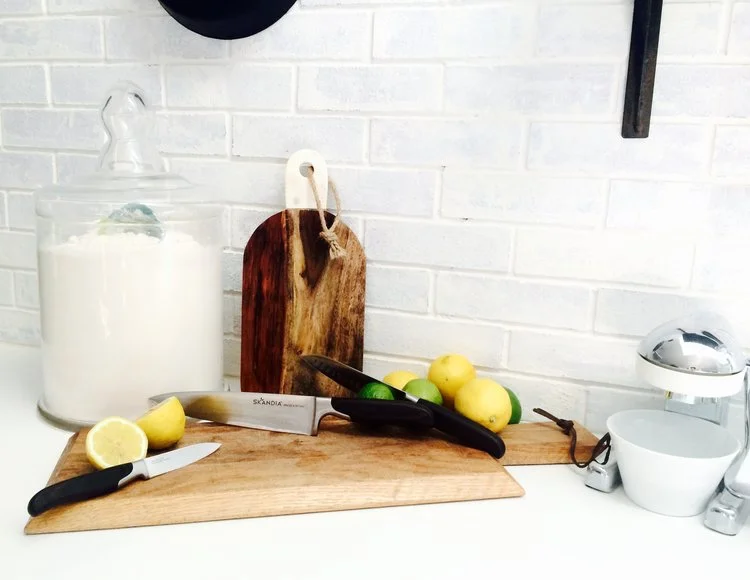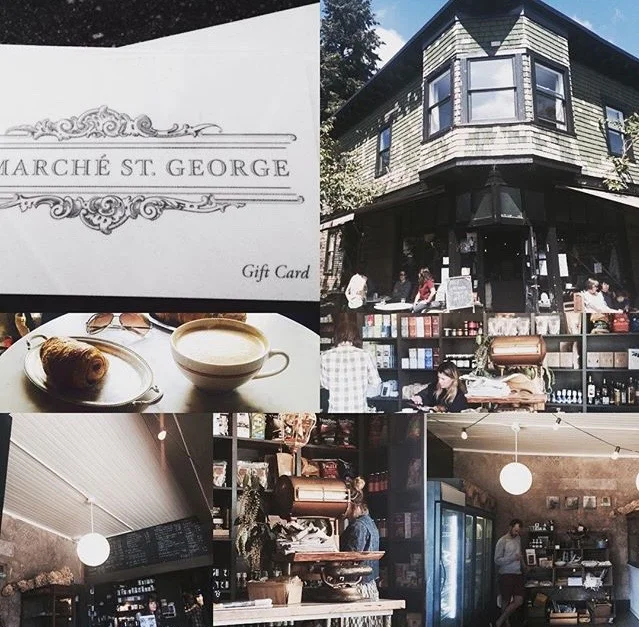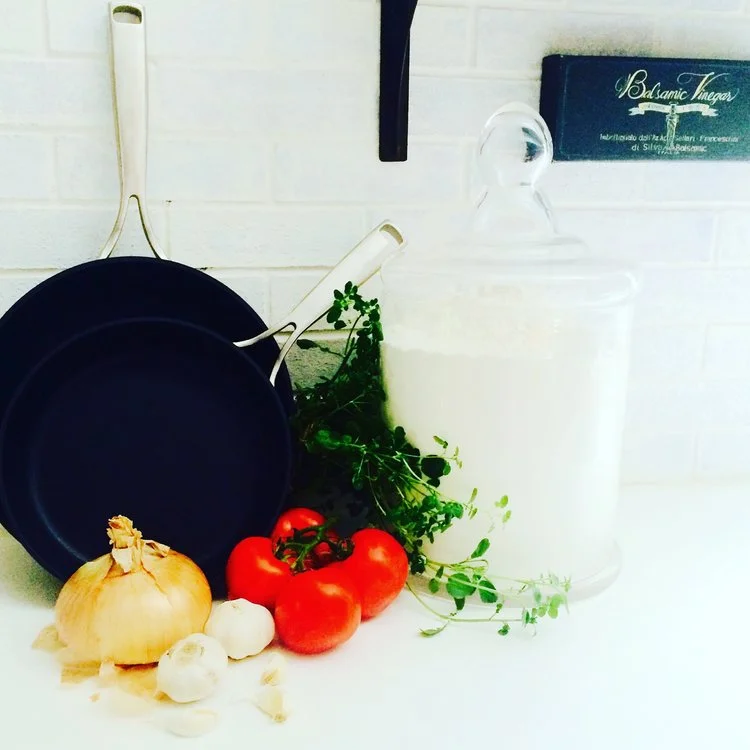How To Find Your Perfect Knives
If you find yourself sawing through your food rather than slicing through it, perhaps it's time for some new knives. I’m a total creature of habit in my kitchen...so when I had to finally break down and buy some new kitchen knives, it was not an easy thing for me to wrap my head around. My knives had been sharpened so many times they were looking rather worn down and sad. They were no longer doing the job I need them to do, and I was noticing little bits of rust starting to appear deep in the metal. I knew I had to suck it up and just replace them already!!!
I suspected I wouldn't want to be doing this again anytime soon, so I thought it would be wise to do a little research. Here's what I learned:
Knives are either forged or stamped. Forged knives are generally more expensive because they are made with a single piece of molten steel that’s beaten into the desired shape. They have strong blades, with a heavy bolster and heel to protect your hand when you’re cutting. Stamped knives are machine cut and are usually the same thickness throughout, except at the cutting edge. They don’t have a bolster and heel.
Many good quality knives are made of carbon steel, which means they can be sharped fairly easily which is great, but the draw back is they have to be thoroughly dried after every wash because they rust really easily…I found that out the hard way.
Most of the less expensive knives these days are made of stainless steel. They get dull very easily and are quite difficult to get sharp again.
In my opinion, the best option for ease of use would be high-carbon stainless steel because they are a little easier to sharpen and they hold an edge longer. They can still rust, but it's less likely with high-carbon. To be on the safe side, I would still be sure to dry them thourouly after each use.
In my kitchen I have:
Chef’s knife (8-9 inches long)-that’s my go to knife as it’s great for chopping, mincing, dicing and cutting.
Utility knife (5 inches long)- it’s very versatile.
Paring knife (3 inches long)- is great for peeling and trimming.
Serrated knife- which is generally used for slicing bread.
Cleaver- used to cut through meat and bones…it’s pretty hard-core and not really necessary for most cooks these days, but I always feel really legitimate when I use mine lol.
Carving knife- I have an antique one that has been in the family for years…they are great for getting thin even slices from roasted meats.
Sharpening steel- I sharpen my knives several times a week…I’m quite a klutz, so I find having a properly sharpened knife goes a long way to preventing accidents!
These are few things to consider before choosing which knives will suit you best:
Always test out how the knife feels in your hand before you buy it. Everyone is different. If you're the one doing the majority of the cooking, then it’s important that the handle feels comfortable in your hand and the weight of the knife feels right to you.
Are you the type to leave unwashed knives in the sink, or put them in the dishwasher? If yes, be sure to choose a knife made of high-carbon stainless steel, as it will be less prone to corrosion.
Your knives will last you infinitely longer if you hand wash and dry them after each use. The dishwasher causes them to dull significantly quicker and leaving them to dry on their own can cause them to corrode.
Don’t use your knives on stone or glass cutting boards, it can damage your knife. Wood or rigid plastic cutting boards are your best options.
You're more likely to cut yourself using knives that are dull, because they are more likely to slip due to the extra pressure needed to pierce the surface of the food. A sharp knife will cut through your food effortlessly.
In the end, I chose a set of well-priced Skandia knives that I found at Homesense. They have comfortable, nice looking wooden handles, and the weight is just perfect in my hand. The only downside is that they’re made of stainless steel, which means I have to sharpen them more often. Luckily, my local butcher doesn't mind professionally sharpening them for me when the need arises.
Although, these lower cost knives will need a little more maintenance to perform the way I need them to, it's a trade off I'm willing to make. I got the look and feel I wanted without breaking the bank.







